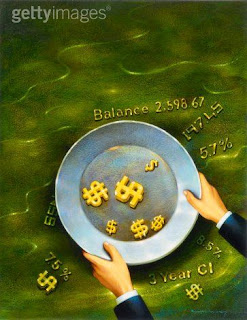 Nine people went on trial Monday in connection with China's tainted milk scandal, state media reported, following the announcement of steps to compensate the families of hundreds of thousands of children harmed by contaminated infant formula.
Nine people went on trial Monday in connection with China's tainted milk scandal, state media reported, following the announcement of steps to compensate the families of hundreds of thousands of children harmed by contaminated infant formula.The tainted formula gave babies painful kidney stones and news of the problem sent parents around the country rushing their babies to emergency rooms for tests to see if they were affected. Chinese dairy exports such as chocolate and yogurt were also found to be tainted, triggering a slew of product recalls elsewhere in Asia and in Europe, Africa and Latin America.
At least four of the suspects on trial Monday could be given the death penalty.
Hearings were held in the northern city of Shijiazhuang, where the company at the heart of the scandal -- Sanlu Group Co. -- is headquartered, along with three other cities in surrounding Hebei province, according to state broadcaster CCTV and the Xinhua News Agency.
The first trials in the case began for six men on Friday.
All 15 on trial have been charged with producing and selling melamine. The industrial chemical was added to raw milk because -- like protein -- it is high in nitrogen and can make protein levels appear higher.
Sanlu's chairwoman and general manager, Tian Wenhua, is scheduled to go before a Shijiazhuang court Wednesday.
At least six babies died and 294,000 other children suffered kidney and urinary problems from drinking the baby formula made from the contaminated milk.
The four suspects in the Shijiazhuang trial are accused of endangering public safety and could face sentences ranging from 10 years in prison to the death penalty. It identified them as Gao Junjie, his wife Xiao Yu, Xue Jianzhong, and Zhang Yanjun.
The four are accused of having produced 200 tons of a mixture of melamine and malt dextrin, a food additive made from starch, that they marketed to milk producers, according to the reports.
Between November 2007 and August 2008, they sold 110 tons to milk producers -- including Sanlu -- for a total of 1.23 million yuan ($180,000), the reports said.
Although melamine, a common industrial chemical used to make plastics and fertilizer, is legal to produce and sell in China, CCTV said the court believed the men's actions had "greatly harmed the health and safety of the consumers, especially infants, therefore violating the criminal law of China."
It was unclear if CCTV was quoting the court. Calls to the Intermediate People's Court went unanswered.
Xinhua said the other five are charged with producing and selling poisonous food, but did not give their names or other details.
The trials come amid moves by authorities to end a national disgrace that highlighted widespread problems with food safety and corporate and governmental malfeasance.
On Saturday, China's Dairy Industry Association said 22 dairy producers would make a one-time cash payment to families of victims and establish a fund to cover medical bills for future health problems.
Lawyers -- who are seeking to bring a lawsuit against the companies involved -- say they understand most children who suffered kidney stones from the tainted milk would get 2,000 yuan ($290), while sicker children would be paid 30,000 yuan ($4,380).
Chinese courts have rejected all claims filed by the victims' families, including a lawsuit filed this month by lawyers representing 63 defendants that sought nearly 14 million yuan ($2 million) in compensation from Sanlu.
The state-owned company has been declared bankrupt according to New Zealand's Fonterra Group, which owns a 43 percent stake in Sanlu.
[ForexGen Live Accounts Contest]
Trade, Compete, and Win - Begins the 1st of Every Month!

ForexGen has the pleasure to announce the launching of its first monthly Live Accounts contest,
This is NOT a demo contest
this is a live trading [competition] open for all live mini account holders. At the beginning of each month, the slate is wiped clean and traders have a new opportunity to win the monthly prizes.
What makes this contest unique?
All prizes are CASH prizes with no restrictions on withdrawing the prize money! How Do I Enter?
You don't have to pay any fee to enter this contest, all [ForexGen] mini Accounts with a balance of "$1000" and a default leverage of 1:200 are entitled to participate in this contest upon their account holder request by sending an e-mail request on live.contest@forexgen.com
For more information about our current and future promotions, kindly contact one of our customers support agents at promotions@forexgen.com





















